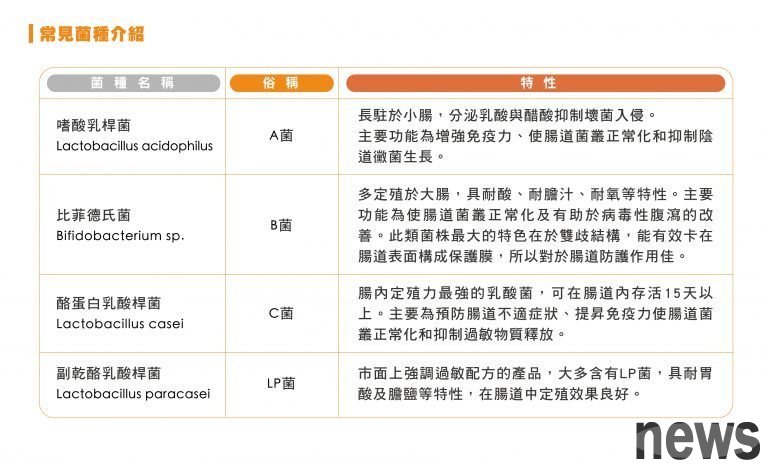 The food you should know
The food you should know It is recommended to ask the doctor or nutritionist before making a decision on the choice of bacterial species, agent type and dosage. When purchasing, you should also choose probiotic products that are fully packaged and clearly marked, and pay attention to whether there are no health food certifications or SNQ national quality marks, whether the manufacturer complies with the GMP food good practice standards, etc., in order to eat with peace of mind.
The so-called probiotics refer to some special live bacteria that can grow and reproduce in the human digestive tract and do not cause disease. Different bacterial species can inhibit the proliferation of harmful bacteria, change the balance of the digestive tract, and thus produce positive benefits such as maintaining normal digestive functions and helping to form a protective mucosal barrier. The probiotic definition of
The United Nations Farming Organization (FAO) and the World Health Organization (WHO) are: active microorganisms that benefit the health of the host when there is a sufficient number of active microorganisms. Commonly seen probiotics in Taiwan include: Lactobacillus acidophilus (Lactobacillus acidophilus; commonly known as A bacteria), Lactobacillus casei (Lactobacillus casei; commonly known as C bacteria), Lactobacillus paracasei (LP bacteria), Streptococcus thermophilus (Bifidobacterium bifidum; commonly known as B bacteria or Bifidella), Bifidobacterium longum; etc. Each bacteria have its own characteristics and functions.

Because modern parents pay attention to their children's physical care, probiotics are one of the earliest health foods that many children and teenagers begin to replenish. There are many brands and types of probiotic products on the market, and the most important ones are to improve gastric tract function and help adjust allergic body quality and other health benefits. Regardless of which effect we hope to achieve, the key is the number of probiotics that "alive smoothly to reach the digestive tract." If the number of bacteria is too small, the effect will be greatly affected; but when the number of bacteria is too large, it will not be able to fully exert effect.
Then what kind of bacteria and agent should we choose and how much dosage should we take? It is recommended to ask the doctor or nutritionist before making a decision. When purchasing, you should also choose probiotic products that are fully packaged and clearly marked, and pay attention to whether there are no health food certifications or SNQ national quality marks, whether the manufacturer complies with the GMP food good practice standards, etc., in order to eat with peace of mind. After buying it home, you must follow the product instructions to store it in an appropriate manner to avoid destroying the activity of probiotics beyond the high temperature environment. Finally, I would like to remind everyone that there are no researches that prove that probiotics can cure diseases. Therefore, patients with allergic diseases such as asthma and anaplastic dermatitis should still be diagnosed, received a regular doctor, and used medicine according to the doctor's instructions.